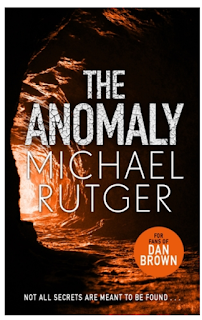[Review originally published on Bookmunch: View Post]
Seaweed Rising by Rob Magnuson Smith is the type of book where the mood and plot both creep up on the reader like the many wet fronds of the seaweed that play a central role in this deeply disturbing, captivating dystopia.
We meet Manfred, a fifty-something teacher on the gloomy beaches of a Cornish village, where mizzle and fog mingle with the smell of dry vegetation circled by flies, salt-air crust lingers on the tongue, and everyone wants to get away. The splash and suck of the sea is constant: ‘It was a sound both relaxing and frightening, like the sleep-inducing cacophony of a pumping heart.’ Here begins his obsession with phycology, after discovering a huge kelp on the shore and relocating it to a bathtub in his garden.
Importantly, from the very beginning, nobody’s point of view seems rational: not Manfred, not his colleagues, not even Nora, our second central character whom he meets at the local farmers’ market. She is selling edible seaweed, of course, and a fatal attraction is forged.
To say that Manfred is convinced that seaweeds are rising is a rather simplified explanation; the brilliance of the novel lies in the fact that we never fully comprehend what it is that we should fear – or not. For the most part, we don’t know whom to believe. The points of view shift between that of Manfred and Nora, one quickly disintegrating into an unreliable narrator while the other seems to hold the voice of reason for slightly longer. As the story unfolds, we delve deep into psychosis, obsession, compulsion and suicide, and the impulse is spreading. So could algae be to blame after all?
The strangely cold and detached relationships between characters are weighed against the collective experience as the novel explores questions surrounding the potential apocalypse, whether caused by sentient vegetation or not: should we bring new life into the world if it is doomed to fail? Would it be better for the planet if humans disappeared altogether? As the characters travel across the globe, from the UK to Spain and the Arctic, signs of our imminent downfall are everywhere: meth addicts and alcoholics pepper the city streets, and the corporates are pushing into the most pristine landscapes with drills.
When compared to the strategic aim of the seaweeds – that is, to become the dominating species – humanity seems destined to fail. But children are conceived; alliances forged where there were none to be found. Rossman’s agrarian imperative, which argues that some of us have a genetic need to provide for our fellow humans, keeps cropping up. Whether we care enough is the ultimate question that the novel poses, and it lingers bitterly on the tongue.
Although referring to a glacier, Smith could equally be writing about the very planet we walk: ‘It was as if they had become entranced by an edifice so massive and beautiful – and simultaneously dying.’ We stood by and watched it happen.






